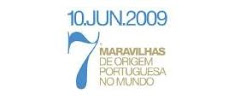
Mariza is a Mozambican whose soul was forged in the old Mouraria district of Lisbon. It was there that she first heard fado singers, lots of them - so many that their names and faces have merged into the mist of memory; but these “reminiscences live on in my singing”. In 2002, at the Quebec Summer Festival, she received the First Award for Most Outstanding Performance. That same year she performed in New York’s Central Park, the mythical Hollywood Bowl, the Womad Festival, and sold out the Belém Cultural Centre in Lisbon and the Purcell Room on London’s South Bank.After conquering British audiences with her performance on Jools Holland’s legendary television show (as well as being distinguished by inclusion in the commemorative DVD), Mariza was awarded the BBC Radio 3 Best European World Music Artist Award in March 2003. German critics awarded her the Deutsche Schalplatten Kritik Award. On a succession of tours in Europe and North America she sold out the Royal Festival Hall in London, the Alte Oper in Frankfurt, the Belém Cultural Centre in Lisbon and the Théâtre de La Ville in Paris. In 2004, the year in which she launched her first DVD, which was recorded at the Union Chapel in London, she received the European Border Breakers Award at MIDEM and went on to participate in Unity, the official album of the Olympic Games, on which she sang the number A Thousand Years with Sting.Mariza has performed concerts on four continents with notable success and full houses; the Walt Disney Concert Hall with the Los Angeles Philharmonic Orchestra; the Carnegie Hall in New York, the Alte Oper in Frankfurt, the Teatro Grec in Barcelona, the Albeniz Theatre in Madrid, the Royal Festival Hall in London or the Opera House in Sydney. She was the guest of honour at the Cairo International Song Festival . She has also performed at the Chicago World Music Festival, the San Francisco Jazz Festival, the Macau Cultural Centre and at Moscow’s House of Music.Also she was invited to be a part of Live 8, performing at The Eden Project in Cornwall in the UK, under the banner of ‘Africa Calling’, alongside artists such as Peter Gabriel, Youssou N’Dour and Angélique Kidjo.2005 came to a close with Mariza nominated for the Best European Artist in the category of World Music Award by BBC Radio 3.Mariza began the year of 2006, with two memorable concerts at Sydney Opera House and has been nominated for the 2006 Helpmann Awards under the category of Best International Contemporary Concert, by Live Performance Australia (LPA).Mariza keep’s on tour all over the world, from Los Angeles - two nights at Hollywood Bowl with the Hollywood Bowl Orchestra, conducted by the prestigious maestro John Mauceri, to Asia where she performed for the fist time in Malaysia, China and Thailand, being acclaim by public and critic. In October, Mariza was nominated for the third time for the BBC 3 Word Music Awards, in the category of Best European Act. As one poet wrote, fado makes its way in the world through the transparency of its lyrics, and these Mariza sings with all her heart, because it’s in the work of poets that Mariza seeks the words which she can make her own within a traditional form of music which is undergoing constant renewal: “ fado is not limited… but it must be treated with the most care”.














